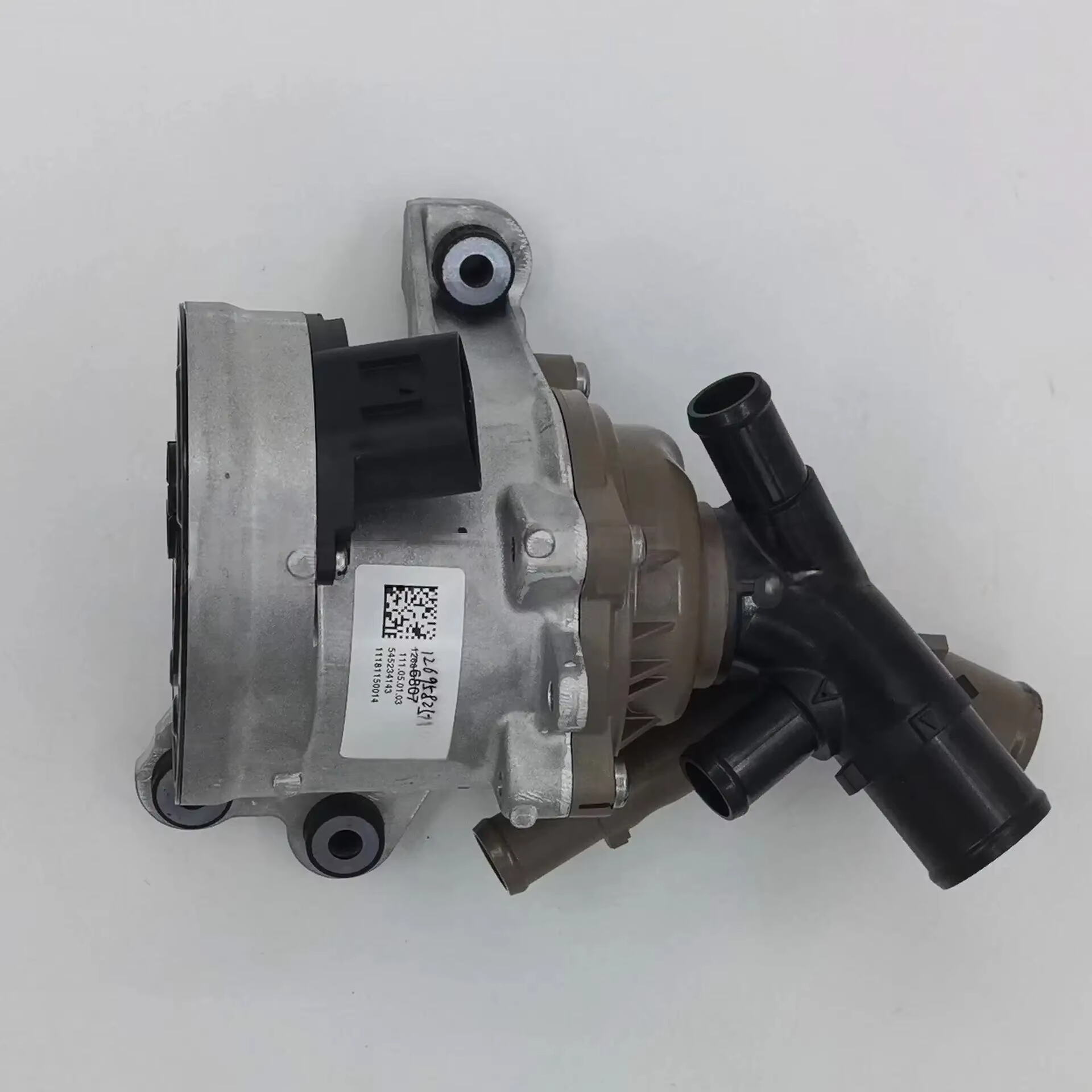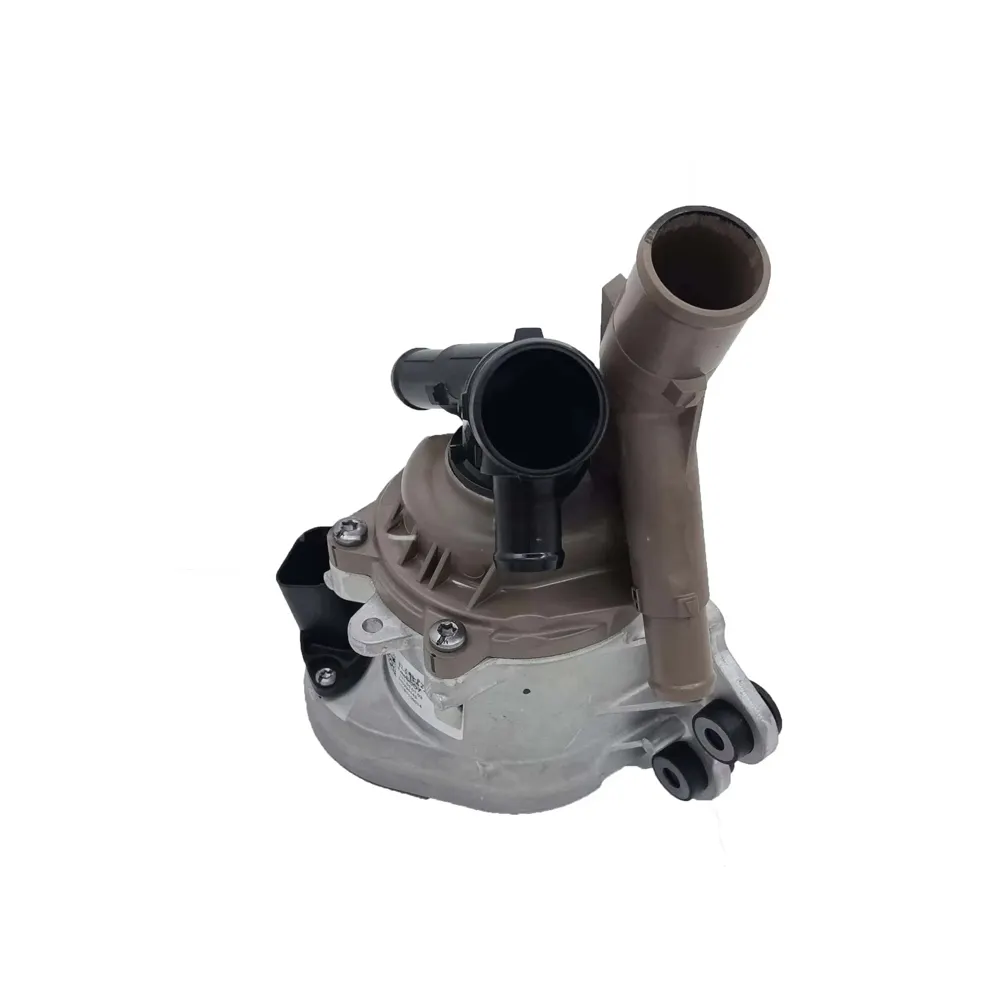Essential Components for Efficient Engine Performance
In any vehicle, maintaining optimal engine temperature is key to ensuring both performance and longevity. Auto water pumps play a vital role in regulating this temperature by circulating coolant throughout the engine and radiator system. Without a properly functioning auto water pump, the engine is at risk of overheating, leading to significant mechanical failure and costly repairs. Understanding the role and importance of auto water pumps helps drivers appreciate their function in the broader vehicle ecosystem.
The Role of Auto Water Pumps in Engine Cooling
Circulating Coolant Through the Engine
Auto water pumps are responsible for moving coolant from the radiator through the engine block and back again. This circulation absorbs and dissipates excess heat generated during combustion. By constantly transferring heat away from the engine, the auto water pump maintains a stable temperature that prevents thermal stress on internal components.
Supporting the Thermostat and Radiator Function
A reliable auto water pump complements the operation of the thermostat and radiator. The thermostat regulates when coolant should flow, while the radiator cools the heated coolant. The pump ensures this cycle is seamless and continuous. Any delay or inefficiency in pump performance can disrupt the balance, leading to overheating or inefficient fuel consumption.
Common Types of Auto Water Pumps
Mechanical Water Pumps
Mechanical auto water pumps are belt-driven and are the most traditional type used in many vehicles. They are directly linked to the engine's rotation and operate as long as the engine is running. These pumps are known for their durability but may consume more engine power.
Electric Water Pumps
Electric auto water pumps are powered by the vehicle's electrical system rather than being mechanically driven. These pumps can function independently of the engine, offering more efficient cooling and contributing to better fuel economy. They are increasingly common in hybrid and electric vehicles.
Indicators of a Faulty Auto Water Pump
Unusual Engine Temperature Fluctuations
Fluctuating engine temperatures often indicate a problem with the auto water pump. If the pump is failing, coolant may not circulate correctly, causing the engine to overheat or cool unevenly. This is often accompanied by temperature warning lights on the dashboard.
Coolant Leaks and Unusual Noises
A damaged seal or impeller in an auto water pump may lead to coolant leaks beneath the vehicle. Additionally, a failing pump can produce grinding or whining noises due to worn bearings or loose components. These symptoms should be inspected immediately to prevent severe engine damage.
Selecting the Right Auto Water Pump
Compatibility and Material Quality
When choosing an auto water pump, compatibility with your vehicle’s make and model is essential. The materials used in the construction of the pump—such as cast aluminum or high-grade plastic—also affect longevity and heat resistance. Always opt for pumps that meet or exceed OEM specifications.
Manufacturer Reliability and Warranty
Auto water pumps from reputable manufacturers typically offer longer warranties and more reliable performance. Investing in a trusted brand may reduce long-term maintenance costs and ensure better compatibility with your engine’s cooling system.

Installation and Maintenance Tips
Professional vs. DIY Installation
While some car owners may opt for DIY installation, auto water pumps are often best installed by professionals to ensure proper fit and alignment. Incorrect installation can lead to leaks or inefficient cooling.
Routine System Checks
Regular inspection of the cooling system, including hoses, coolant levels, and the auto water pump, helps detect issues early. Preventive maintenance can extend the lifespan of the water pump and keep your engine running smoothly.
Advantages of High-Performance Auto Water Pumps
Improved Engine Efficiency
High-quality auto water pumps enhance the overall efficiency of the cooling system. By maintaining consistent coolant flow and temperature control, these pumps reduce engine wear and support better fuel economy.
Suitable for High-Demand Environments
For vehicles operating under heavy loads or extreme conditions, performance-grade auto water pumps offer added durability. These models are designed to handle higher pressures and temperatures, ensuring engine safety even in demanding environments.
FAQ
What are the main differences between mechanical and electric auto water pumps?
Mechanical pumps are driven by the engine belt and operate whenever the engine is running, offering reliable performance. Electric pumps, powered by the vehicle’s electrical system, provide more precise cooling control and are commonly used in modern and hybrid vehicles.
How can I tell if my auto water pump is starting to fail?
Signs of failure include fluctuating engine temperatures, coolant leaks under the vehicle, or unusual noises like whining or grinding from the engine area. Early detection can help avoid costly engine damage.
Do high-performance water pumps improve engine efficiency?
Yes. High-performance pumps ensure more consistent coolant circulation and better thermal management, which helps reduce engine wear and improve fuel economy, especially under high-load or high-temperature conditions.
Is it necessary to replace the water pump when changing the timing belt?
In many vehicles, the water pump is driven by the timing belt. Replacing both at the same time is often recommended, as it reduces labor costs and minimizes the risk of future breakdowns.
How often should I inspect or replace my auto water pump?
Routine inspections are recommended during major services or coolant flushes. Most water pumps last between 60,000 to 100,000 miles, but always refer to your vehicle manufacturer’s guidelines.
Table of Contents
- Essential Components for Efficient Engine Performance
- The Role of Auto Water Pumps in Engine Cooling
- Common Types of Auto Water Pumps
- Indicators of a Faulty Auto Water Pump
- Selecting the Right Auto Water Pump
- Installation and Maintenance Tips
- Advantages of High-Performance Auto Water Pumps
-
FAQ
- What are the main differences between mechanical and electric auto water pumps?
- How can I tell if my auto water pump is starting to fail?
- Do high-performance water pumps improve engine efficiency?
- Is it necessary to replace the water pump when changing the timing belt?
- How often should I inspect or replace my auto water pump?

